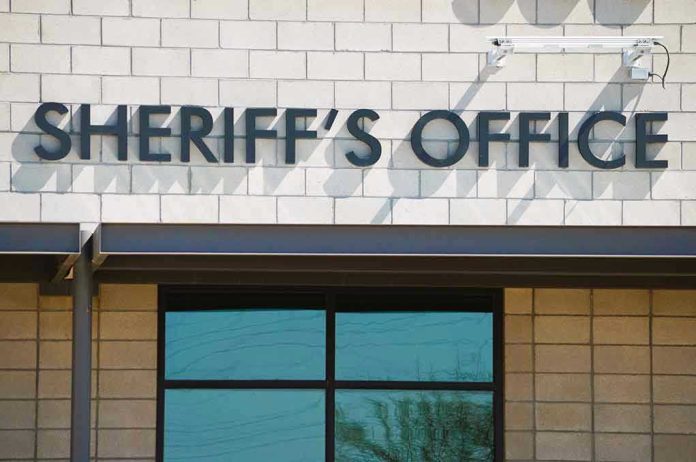
A sheriff’s divine attribution for the safety of two young men sparks debate over faith and public service.
Story Highlights
- Sheriff attributes a positive outcome to divine intervention.
- Incident involved two young men in a life-threatening situation.
- Religious statement raises questions on church-state separation.
- Community reactions vary based on cultural and religious values.
Sheriff’s Statement Sparks Debate
In a recent incident involving two young men, a sheriff publicly credited divine intervention for their safety, stating, “God is great. He certainly was watching out for two young men yesterday. Absolutely no doubt in my mind.” This statement has sparked discussions regarding the role of faith in public service, especially in a nation where the separation of church and state is a foundational principle.
While the specific details of the incident remain unclear, the sheriff’s comments have resonated deeply within the community, reflecting the local cultural norms and religious beliefs. However, it has also raised questions about the appropriateness of religious language in official public statements, particularly in more secular circles.
Community and Cultural Context
The sheriff’s statement likely reflects the values of a predominantly religious and possibly rural community, where public expressions of faith are a norm. Residents may find comfort and validation in attributing positive outcomes to divine intervention. These statements often strengthen community bonds, particularly in religious areas, but can simultaneously alienate those who advocate for a more secular public sphere.
Such incidents are not uncommon in the United States, where public officials have historically invoked religious language in the context of survival or rescue events. While many see these as genuine expressions of faith, they occasionally lead to controversy when perceived as exclusionary or inappropriate for a public official’s role.
Potential Implications and Reactions
In the short term, the community may experience a sense of relief or gratitude, with some residents attributing the favorable outcome to faith. In the long term, this incident could reinforce religious norms in local governance or prompt ongoing discussions about the role of faith in public statements. While the economic impact of such statements is negligible, the social impact centers on potential division or cohesion within the community regarding religious expression.
Legal experts often highlight that while personal expressions of faith by officials are protected, repeated or official endorsements of religion can raise constitutional questions. Sociologists and political scientists note that such statements can strengthen community bonds but may also exclude non-religious or secular community members. Critics argue that these statements may blur the line between church and state, potentially alienating non-believers or those who support strict constitutional adherence.
Sources:
Official: FBI Looking at Terrorism in Flint Airport Stabbing



